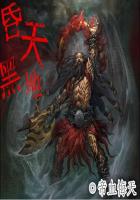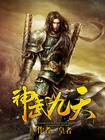"The Shoshonees are a small tribe of the nation called the Snake Indians, a vague appellation, which embraces at once the inhabitants of the southern parts of the Rocky Mountains and of the plains on either side.
The Shoshonees with whom we now were amount to about one hundred warriors, and three times that number of women and children. Within their own recollection they formerly lived in the plains, but they have been driven into the mountains by the Pahkees, or the roving Indians of the Sascatchawan, and are now obliged to visit occasionally, and by stealth, the country of their ancestors. Their lives, indeed, are migratory.
From the middle of May to the beginning of September they reside on the headwaters of the Columbia, where they consider themselves perfectly secure from the Pahkees, who have never yet found their way to that retreat.
During this time they subsist chiefly on salmon, and, as that fish disappears on the approach of autumn, they are driven to seek subsistence elsewhere.
They then cross the ridge to the waters of the Missouri, down which they proceed slowly and cautiously, till they are joined near the Three Forks by other bands, either of their own nation or of the Flatheads, with whom they associate against the common enemy. Being now strong in numbers, they venture to hunt the buffalo in the plains eastward of the mountains, near which they spend the winter, till the return of the salmon invites them to the Columbia. But such is their terror of the Pahkees, that, so long as they can obtain the scantiest subsistence, they do not leave the interior of the mountains; and, as soon as they have collected a large stock of dried meat, they again retreat, thus alternately obtaining their food at the hazard of their lives, and hiding themselves to consume it.
"In this loose and wandering life they suffer the extremes of want; for two thirds of the year they are forced to live in the mountains, passing whole weeks without meat, and with nothing to eat but a few fish and roots. Nor can anything be imagined more wretched than their condition at the present time, when the salmon is fast retiring, when roots are becoming scarce, and they have not yet acquired strength to hazard an encounter with their enemies. So insensible are they, however, to these calamities, that the Shoshonees are not only cheerful, but even gay; and their character, which is more interesting than that of any Indians we have seen, has in it much of the dignity of misfortune.
In their intercourse with strangers they are frank and communicative; in their dealings they are perfectly fair; nor have we, during our stay with them, had any reason to suspect that the display of all our new and valuable wealth has tempted them into a single act of dishonesty.
While they have generally shared with us the little they possess, they have always abstained from begging anything from us.
With their liveliness of temper, they are fond of gaudy dresses and all sorts of amusements, particularly games of hazard; and, like most Indians, delight in boasting of their warlike exploits, either real or fictitious.
In their conduct towards us they have been kind and obliging; and though on one occasion they seemed willing to neglect us, yet we scarcely knew how to blame the treatment by which we were to suffer, when we recollected how few civilized chiefs would have hazarded the comforts or the subsistence of their people for the sake of a few strangers.
. . . . . . . . .
"As war is the chief occupation, bravery is the first virtue among the Shoshonees. None can hope to be distinguished without having given proofs of it, nor can there be any preferment or influence among the nation, without some warlike achievement.
Those important events which give reputation to a warrior, and entitle him to a new name, are: killing a white [or grizzly] bear, stealing individually the horses of the enemy, leading a party who happen to be successful either in plundering horses or destroying the enemy, and lastly, scalping a warrior.
These acts seem of nearly equal dignity, but the last, that of taking an enemy's scalp, is an honor quite independent of the act of vanquishing him. To kill your adversary is of no importance unless the scalp is brought from the field of battle; were a warrior to slay any number of his enemies in action, and others were to obtain the scalps or first touch the dead, they would have all the honors, since they have borne off the trophy.
. . . . . . . . .
"The names of these Indians vary in the course of their life.
Originally given in childhood, from the mere necessity of distinguishing objects, or from some accidental resemblance to external objects, the young warrior is impatient to change it by some achievement of his own.
Any important event--the stealing of horses, the scalping of an enemy, or the killing of a brown bear--entitles him at once to a new name, which he then selects for himself, and it is confirmed by the nation.
Sometimes the two names subsist together; thus, the chief Cameahwait, which means `One Who Never Walks,' has the war-name of Tooettecone, or `Black Gun,' which he acquired when he first signalized himself.
As each new action gives a warrior a right to change his name, many of them have several in the course of their lives. To give to a friend one's own name is an act of high courtesy, and a pledge, like that of pulling off the moccasin, of sincerity and hospitality.
The chief in this way gave his name to Captain Clark when he first arrived, and he was afterward known among the Shoshonees by the name of Cameahwait."
On the thirtieth of August, the whole expedition being now reunited, and a sufficient number of horses having been purchased of the Shoshonees, the final start across the mountains was begun.
The journal says:















